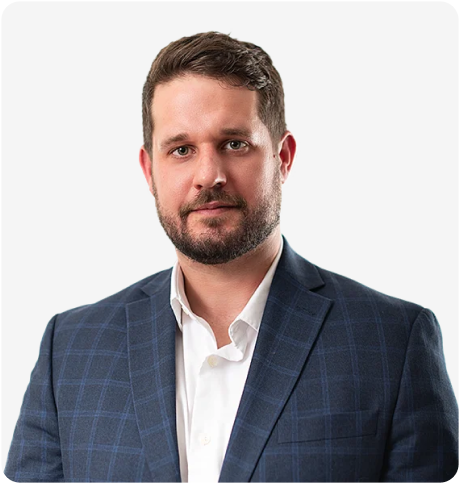We guide you in your search for the answers to the questions you have about yourself.















A group of psychotherapists and psychoanalysts who are committed to providing effective psychotherapy, psychoanalysis, and psychoanalytic education. We believe in this approach because of our many years of experience working closely with our patients.



We guide you in your search for the answers to the questions you have about yourself.
The knowledge you gain from the answers you find will be the bridge to your future.
Our focus is your journey. We will work together to create the path towards the best version of you.
Individual therapy offers the space to explore the “why” questions of your life. Questions like: Why am I afraid? Why do I drink so much? Why am I stuck at work? Why can’t I find the love of my life?
Book an AppointmentFor couples who are experiencing a challenging moment in their relationship. With guidance and proper intervention, you can find a way to resolve your conflict.
Book an AppointmentAdolescence is a challenging experience for a young person—a time of changing bodies and hormones; school demands; and on-line and real-life social pressures. Often, they cannot manage these pressures on their own. But this is also the time when the need to separate from parents emerges, which creates conflict. With the right intervention they can move past this difficult phase of their life.
Book an AppointmentWhen family harmony is destabilized by circumstances like divorce, loss, illness, immigration…it is often helpful to involve a trained family-therapist who can identify and resolve the arising conflicts.
Book an Appointment


Choosing a therapist can be hard.
Let us make it easy—take the survey to find your perfect therapist.





At TheraBridge, all our clinicians are trained in psychodynamic psychotherapy or psychoanalysis.
The term psychotherapy covers various forms of treatment. Psychodynamic psychotherapy is a treatment model developed from the psychoanalytic theoretical method developed by Sigmund Freud and others who came after him. Sessions are usually offered on a weekly or biweekly basis while utilizing the chair, and the patient and therapist see each other face-to-face.
Typically, the topics of psycho-therapeutic exploration address various ‘Why?’ questions: Why is facing uncertainty so scary; why is it difficult to love and be loved; why does it seem impossible to attain financial stability; why is the notion of career advancement so dreadful; why is it such a struggle to say no to substances, situations, and relationships that make me feel bad; and why is it difficult to experience joy and happiness without feeling guilty? Sometimes these ‘Why? questions indicate internal conflicts that are better treated by psychoanalysis. If that is the case, we will recommend psychoanalytic treatment in order to offer the treatment that is best suited for you.
Psychoanalysis is, both, a theory of the human mind, and a therapeutic practice. It was developed by Sigmund Freud between 1885 and 1939 and continues to be developed by psychoanalysts all over the world. In fact, the organization Freud founded in 1910, the International Psychoanalytic Association, has over 12,000 members. Psychoanalytic treatment is offered at the frequency of at least four times a week (sometimes 3 times is accepted), and the work is carried out while the patient lies down on the couch, and the analyst sits behind it. The idea of using the couch in this way was introduced by Freud, who thought that the analyst’s body language and facial expressions could interrupt and inhibit the patient’s free-association. In other words, the analyst’s seating arrangement seeks to invite the patient’s thoughts, feelings and fantasies while minimizing the experience of fear, guilt, and shame. Symptoms such as anxieties, inhibitions and depressions are frequently the signs of inner conflicts. These lead to difficulties in personal and professional relationships, and when left untreated, can create a considerable negative impact. The roots of these problems often go deep, which is why they prove to be irresolvable without the help of a well-trained analyst.
Accordingly, to become a psychoanalyst, a person spends many years in training, even beyond their graduate-level degrees. In that sense, psychoanalytic training is the longest and most demanding training of any kind of therapy. The training requires each analytic candidate to undergo their own extensive personal treatment. This means that some of us who practice psychoanalysis know, from our own experience, both what it feels like to be in psychoanalysis, and that it really works. If your therapist received a certificate in psychoanalysis, you are in good hands – it means you are working with someone who has gone through years of training beyond their licensure requirement because they wanted to provide highest level of treatment to their patients.
The frequency of work is determined between you and your therapist. However, we do believe a higher frequency has an important effect in the outcome of the treatment. Most of our therapist work with their patients more than once-a-week frequency in psychotherapy. However, if you are in psychoanalytic treatment, the frequency is at least 4 times (sometimes we offer 3 times) a week.
The length of psychotherapy session is either 45 minutes or 50 minutes. Please discuss this with your therapist, but both arrangements are acceptable.
We offer both—in-person, and virtual treatment. Please discuss your preference with your therapist.
Believe it or not, this is by far the most common question we are asked. There is a famous quote from Freud, “Our answer is like the answer given by the Philosopher to the Wayfarer in Aesop’s fable. When the Wayfarer asked how long a journey lay ahead, the Philosopher merely answered ‘Walk!’” The duration of treatment depends on the individual circumstances. Therefore, he says, “[T]he question as to the probable duration of a treatment is almost unanswerable.” At TheraBridge we hold true to Freud’s word, “Walk!” We help our patients walk the path and over the bridge towards a future where new memories and new experiences bring happiness and joy.
Our team of clinicians do not prescribe medication. However, if you and your therapist decide that medication therapy could be beneficial for you, your therapist will assist you in finding a psychiatrist. We will then coordinate the care with them so that we can provide the care that is best suited for you moving forward.
Yes, your information is kept confidential. In case we need to coordinate care with other medical professionals including your psychiatrist, we will obtain your consent, though the exchange of patient information amongst medical providers is considered HIPAA compliant.




